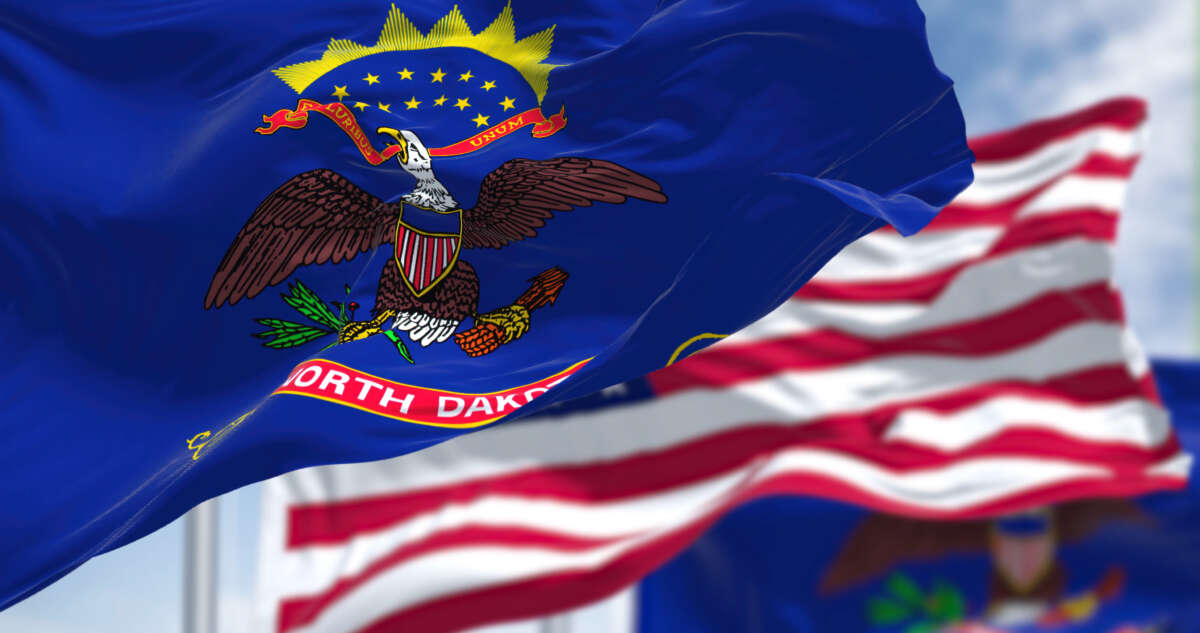Did you know that Truthout is a nonprofit and independently funded by readers like you? If you value what we do, please support our work with a donation.
On Thursday, a North Dakota district judge ruled against a near-total statewide abortion ban, finding that the law violated the constitutional rights of residents in the state.
North Dakota’s abortion ban makes the procedure illegal at all gestational stages of pregnancy. Exceptions are allowed for rape and incest, but only when a person has been pregnant for six or fewer weeks — a timeframe in which many people are not even aware they are pregnant.
The ban also stipulates that abortions can be performed when necessary to save a pregnant person’s life. However, this standard is often disregarded in practice in several states across the country, as laws are vague about what constitutes an emergency, making health care providers fear they will be punished for making a medical judgment the state disagrees with.
In North Dakota, a physician can be punished with a $10,000 fine and/or be sentenced up to five years in prison for violating the law.
Burleigh County District Judge Bruce Romanick deemed the statute unconstitutional and in violation of people’s personal freedoms. He also blasted the law for lacking definitions that would make it clear to health care providers when an abortion could be performed.
“The North Dakota Constitution guarantees each individual, including women, the fundamental right to make medical judgments affecting his or her bodily integrity, health and autonomy, in consultation with a chosen health care provider free from government interference,” Romanick stated in his opinion, adding that “criminalizing pre-viability abortions is not necessary to promote the State’s interests.”
The law is “unconstitutionally void for vagueness,” Romanick also said. He went on:
As currently written, physicians are compelled to guess the law’s meaning and application. This lack of clarity in the law…simply cannot and does not comport with the requirements of due process.
Notably, lawyers for the state argued in favor of keeping the law during oral arguments and in their written briefs by citing a case from an entirely different state, Texas’s State v. Zurawski, which upheld the statewide abortion ban in that jurisdiction. Romanick said the citation of that ruling was wholly inappropriate to the case at hand.
“The Defendant’s heavy reliance on this case is misplaced. … The Zurawski decision, which is not binding authority on this court…[is] a different law, in a different state,” Romanick said.
The ruling removes the statewide ban on abortion, reverting to standards on abortion care that existed prior to its enactment. The state attorney general’s office plans to appeal the decision to higher courts in North Dakota.
Abortion rights advocates lauded the ruling as beneficial to residents in the state.
“This is a win for reproductive freedom and means it is now much safer to be pregnant in North Dakota. Hospitals and doctors no longer have their hands tied and can provide abortions to patients with complications,” attorney Meetra Mehdizadeh of the Center for Reproductive Rights said.
Mehdizadeh, who argued the case, recognized that more challenges were ahead, noting that the repercussions from the ban “cannot be repaired overnight.” Indeed, the only abortion clinic that had existed in the state, which was in Fargo, had moved over the statewide border to Minnesota after the ban was implemented.
The director of that location, the Red River Women’s Clinic, celebrated the ruling as well.
“We are very pleased with the decision today. It gives us hope,” clinic director Tammi Koremenaker said. “We feel like the court heard us.”
Media that fights fascism
Truthout is funded almost entirely by readers — that’s why we can speak truth to power and cut against the mainstream narrative. But independent journalists at Truthout face mounting political repression under Trump.
We rely on your support to survive McCarthyist censorship. Please make a tax-deductible one-time or monthly donation.
